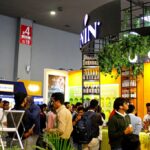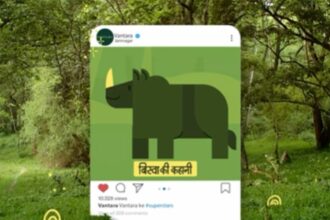Good day, everyone! We’re back, and this time on the Talking Pod, we’ve got Mohamad Jamalee, the CEO of Patriots Holding Group. The Patriots Holding Group is a company focusing on digital media, publishing, agribusiness, and education. Patriots Food Network, which is owned by the company, just introduced a new programme called ‘Kebun Kita,’ which aims to promote local farmers while also helping the economy. This piqued our interest, so we decided to speak with him about his company and his thoughts on the new initiative.
Hi, Jamalee. It’s a pleasure to have you here with us today! Why don’t you start by giving a brief overview of yourself and your professional background?
Hi and thank you for having me here today. My name is Jamalee Bashah and I am the group CEO for Patriots Holding Sdn Bhd. My background is actually in quantity surveying, but my passion has always been in these 3 areas of education, creative industry and food security.In 2012, when social media platforms such as Facebook were booming, I saw an opportunity to enter the creative industry through digital media and online portal. Then, in 2017, we started our publishing company.
It was during the pandemic that I felt that there is no better time to go into training and farming. So, that is how I started the Kebun Kita initiative, by focusing on producing and also helping local farmers to reach a bigger market segment.
It appears that Patriot Food Network has lately launched a new programme called ‘Kebun Kita.’ Could you offer us a little insight into what it is about?
Kebun Kita is an online market platform that sells local produce straight to consumers’ doorstep, from farm to home. So, what we did was gathered the local farmers from nearby areas to supply their community with fresh vegetables and other products every day. We foresee that there is a need to push local farmers and spur the agriculture industry, as well as supply the local community with fresh and healthy food. We also aim to lower the cost of transportation so that the goods sold would be slightly cheaper or the cost would be diverted to quality rather than covering the cost of transportation and storage.
Was there a specific purpose or inspiration behind the creation of ‘Kebun Kita’?
The main inspiration would be the critical issue of Malaysia’s food security and food sovereignty that we are currently facing. We are not producing enough internally. Therefore, we are very vulnerable to inflation and international trade policies, especially from countries we get our supplies. In order to gain total control of our food sovereignty, we must ensure that we can produce enough.
What are the challenges that you faced when you first started the ‘Kebun Kita’ programme?
When we’re talking about fast-moving consumer items like vegetables, the problems or challenges faced is huge. It started as early as production where the price of fertilizers, weather and storage is the main challenge. Then, there are transportation challenges, especially on the last mile delivery where price hike in petrol cost and we can see the immediate impact on prices of the goods. Lastly, the challenge comes from the regulating and enforcing bodies itself where we need to compete with imported items. In my honest opinion, this is where we really need to address the issue of imported goods because it dampens our agriculture industry.
.png)
What distinguishes ‘Kebun Kita’ from its competitors, in your opinion?
That would be our business model for creating more hubs and pick-up points. We give opportunities to the members of the community in the area to open their own Kebun Kita hubs at home. This greatly minimizes the cost of last-mile delivery.
I read in an article that you have teamed up with the Faculty Science of University Malaya to grow split-gill mushrooms on a huge scale, averaging 2-4 tonnes per year. Why did you decide to cultivate the spilt-gill mushroom?
The mushroom industry in Malaysia is not new since its introduction in the early 70s under the Malaysia Plan, but it never really kicked off. Maybe, it’s due to the lack of education, promotion, and awareness of the industry. I can safely say the mushroom industry is still a blue ocean industry in Malaysia. On the choice of split-gill mushrooms, it is mainly because not many are cultivating them and the price is much more stable than the other species or variants.
I’m curious about one thing, Jamalee. Is it possible to harvest mushrooms commercially or for personal consumption without the use of specialised equipment?
Definitely. As long as you have a good supplier for the mushroom substrates or blocks. If you get these blocks from suppliers, mushroom farming is fairly easy. Unless you want to produce your own blocks, then yes, it would take a much longer period and process. My suggestion to those who wants to start; before producing your own blocks, it is advisable to get them from local suppliers.
Wow, that’s interesting! What factors do you consider when determining the mushroom growing conditions and selecting disease control chemicals? Share with us an experience.
Mushroom farming is different from other vegetable farming. It is done in a controlled environment and the level of sanitary and cleanliness is a big factor because we do not want any contamination to happen. I can safely say that no chemicals or pesticides are used in mushroom farming due to the nature of its production in a controlled room or mushroom house.
So, how does it feel to take on an industry as essential as agriculture and livestock?
That’s a good one. It was very hard at first because of its very short shelf life or life span. For example, oyster mushrooms can only last around 5 to 7 days and leafy vegetables like spinach or kangkung, their life span is only about 2 days, and that really depends on how you store them. This would be the first challenge or hurdle that farmers need to tackle and address.

Do you have any specific markets in mind for future expansion?
Exporting our local produce and ready-to-eat products has always been the ultimate end goal. I’m looking at the middle eastern market as well as Japan, Korea and European countries.
What is Patriot Food Network’s vision for a more nourishing, sustainable, and resilient food system in 2022 and beyond?
Make the industry sexier to get our youth to have an interest in the agriculture industry. Thus, creating and opening up more new farms. That would be the main solution to our supply problems.
That’s awesome, Jamalee! Now, what would your advice be to young entrepreneurs who want to start their own agribusiness?
Know where to sell or supply first, know your market and how to get your production straight to your customers. The farming and producing will follow suit.
How can we get in touch with you, Jamalee?
You can reach us online at kebunkita.biz to get more information on our items and also our programmes on helping to create new farmers and farms.






![[exclusive-interview]-patriots-holding-group-ceo-mohamad-jamalee-spoke-with-mia-about-their-new-initiative,-kebun-kita,-and-future-plans](https://www.marketinginasia.com/wp-content/uploads/2022/06/25991-exclusive-interview-patriots-holding-group-ceo-mohamad-jamalee-spoke-with-mia-about-their-new-initiative-kebun-kita-and-future-plans.jpg)










